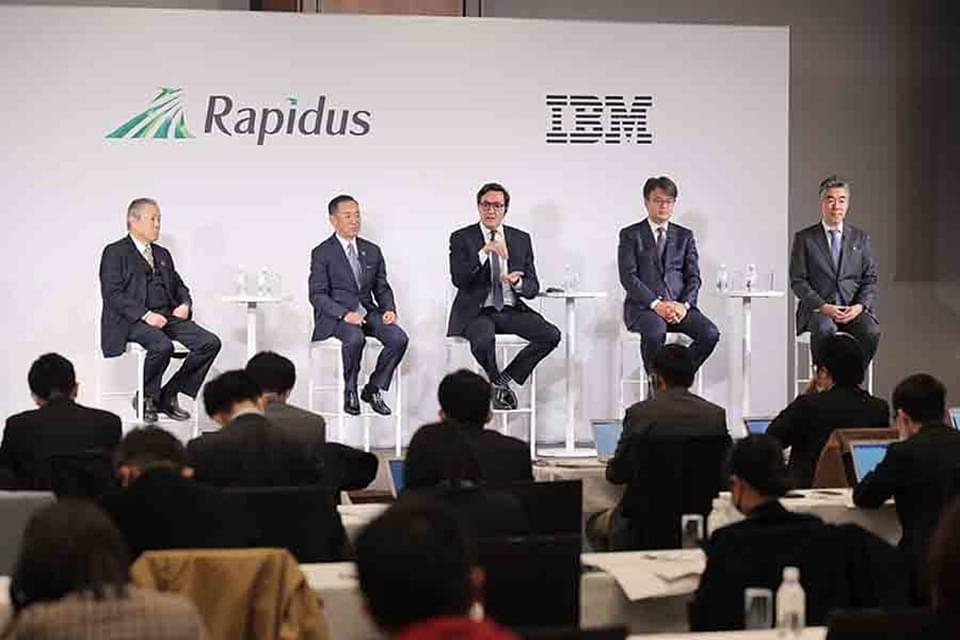Japan is catching up on 2-nm chip manufacturing technology through a licensing deal with IBM. Rapidus, Japan’s new semiconductor fab, will acquire the gate-all-around (GAA) technology for a 2-nm chip process node, and as part of this technology transfer program, the company is sending 100 engineers to IBM this summer.
The first batch of Rapidus engineers was sent to IBM in April this year. GAA, which has become the technology of choice for 2-nm process nodes, places a gate on all four sides of the channel to prevent current leakage while chip circuit line widths are minimized in smaller nodes. IBM calls its GAA technology nanosheet FETs.
The Japanese fab plans to mass-produce 2-nm chips in 2027. Rapidus—backed by Japanese outfits like NEC, NTT, SoftBank, Sony, and Toyota—aims to revive the Japanese semiconductor industry, and the IBM deal is an important part of this technology endeavor. The Japanese government has also doled out $1.9 billion in subsidies to support this program. “It will take several trillions of yen,” Rapidus president Atsuyoshi Koike acknowledged at a news conference in Tokyo a while ago.
It’s worth noting here that Japan’s newly founded foundry has also entered a long-term collaboration with the European research outfit imec to acquire advanced semiconductor technologies. “Through this partnership, we will help Rapidus research and develop the key building blocks necessary for the mass production of state-of-the-art 2-nanometer chip technology,” said Luc Van den hove, president and CEO of imec.
Rapidus, referring to the rapid production of new chips, was founded in 2022 by Tetsuro Higashi and Atsuyoshi Koike. Tetsuro Higashi, former chairman of Tokyo Electron, and Atsuyoshi Koike, former president of Western Digital, set up this foundry to produce 2-nm chips in Japan. They drew investment from companies such as Toyota, Sony, and NTT.
All this activity can be seen in the backdrop of two important factors. First, after the glory days of the 1980s when Japanese firms established a near monopoly in the memory business, Japan is trying to reclaim its position in the chip manufacturing world currently dominated by Taiwan and South Korea.
Second, Japan is closely working with the United States to bolster its semiconductor technology capabilities and diversify its chip manufacturing supply chains presently concentrated in Taiwan and Korea. At the same time, Japan is trying to create a roadmap for human resources development by strengthening technical cooperation with advanced semiconductor outfits.
Arvind Krishna, CEO of IBM, summed it up while commenting on the collaboration between the two companies. “There is enough investment in the Japanese semiconductor industry; Japanese semiconductor engineers are working hard and IBM will provide the technology.”
Related Content







